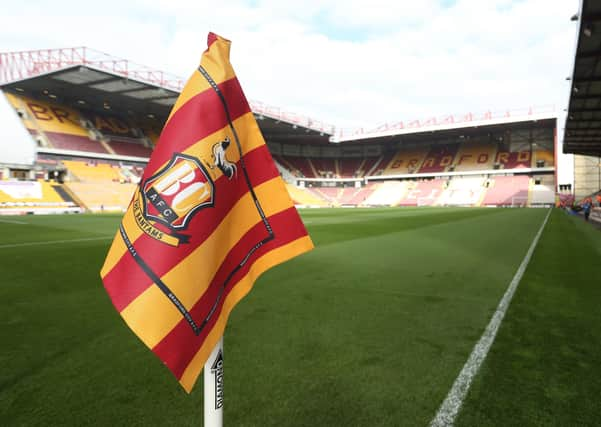Bradford City, Sunderland and Portsmouth should look at bigger picture over salary cap


Earlier this month, the vast majority of League One and Two clubs voted for a squad salary limit of £2.5m and £1.5m for their respective divisions in 2020-21.
Discussions with Championship clubs are ongoing, with a ceiling likely to be set at £18m.
Advertisement
Hide AdAdvertisement
Hide AdWages, bonuses, taxes and image rights, plus agents’ and other relevant fees will be included within the cap but bonuses gained from promotion or progression in cups will be exempt.


Clubs will be fined or face further sanctions if they exceed the limits.
While hierarchies at a host of lower-division clubs have voiced their support for the move as football readjusts to a markedly-changed financial landscape following the Covid-19 pandemic, several leading clubs such as Bradford City, Sunderland, Portsmouth and Ipswich have voiced opposition to the proposals, which they view as anti-competitive and akin to a restraint of trade.
But ultimately the bigger picture is that the proposals will prevent a number of clubs from falling into administration in the next few years, so says Rob Wilson, a sports finance expert at Sheffield Hallam University.
Advertisement
Hide AdAdvertisement
Hide Ad“The Football League needs better regulation to improve financial sustainability and suppress wage inflation,” Wilson told The Yorkshire Post.


“In my view, if it does not act now, we will be talking about ten, 15 or maybe 20 clubs going into administration in the next two years.
“If anyone who has a beef with the salary cap is happy for teams to go out of business up and down the country and for fans to go without football and for people to experience what Bury FC did, then that is poor form as far as I am concerned.
“We know about the financial disparity between the haves and have nots and what a salary cap will do is provide a fairer system in the league which will improve competitive balance and the upshot will hopefully be better broadcast deals and sponsorships and higher gate receipts.
Advertisement
Hide AdAdvertisement
Hide Ad“Long term, it will provide not just financial sustainability, but prosperity in the league which will naturally lead to increases in the cap or relaxation of certain regulations.
“The overall impact will be to suppress wage inflation which has been outstripping income for years. It also gives owners a level of protection and takes out some of the emotion for the owners and chairmen to make rational decisions rather than irrational ones.”
Lower-division clubs have also agreed to maximum 20-man squads, although there is no limit on the number of players under the age of 21 and their wages do not count towards the cap.
To give clubs time to adjust to the new regulations, squads of 22 will be allowed in 2020-21 in a transition season.
Advertisement
Hide AdAdvertisement
Hide AdWilson continued: “It stimulates academy development and you could argue that the regulations will promote much more academy production through the system and you will see more academy players in squads.
“That can only be a good thing for players, academies and the English national game.
“It should also be a good thing for those clubs as if academy prospects do really well and they can be sold to higher division clubs, they are winning.
“It is a whole system approach and the straightforward regulation could arguably be the biggest regulatory improvement we have seen for decades.”
Advertisement
Hide AdAdvertisement
Hide AdAlongside dissent from certain clubs – with Bradford City one of just two League Two clubs to vote against the proposals – criticism has also arrived from the Professional Footballers Association, who have labelled the plans as “unlawful and unenforceable”.
They remain in talks with the EFL in a bid to broker amendments to the proposals.
Wilson said: “Covid has basically cut off the income of most clubs up and down the system.
“If they did not do something quickly, then people would be saying ‘the EFL should have done something about this 12 months ago’ and that it was too little, too late.
Advertisement
Hide AdAdvertisement
Hide Ad“They (EFL) had to do it. They had to get the right number of votes and they have achieved that in League One and Two and those clubs are saying fairly unanimously that they want it.
“The PFA are massively out of touch with reality for me.
“They have to protect the interests of their members past present and future and by opposing the salary cap regulations, there will be less members, clubs and players (potentially in future).
“Football clubs are businesses and in a normal business, you would not run your organisation at a massive loss and expect to continue trading year on year.
“You need a much more robust and sustainable competition. If that means some of the big boys do not get promoted at the first time of asking, so be it.”
Comment Guidelines
National World encourages reader discussion on our stories. User feedback, insights and back-and-forth exchanges add a rich layer of context to reporting. Please review our Community Guidelines before commenting.